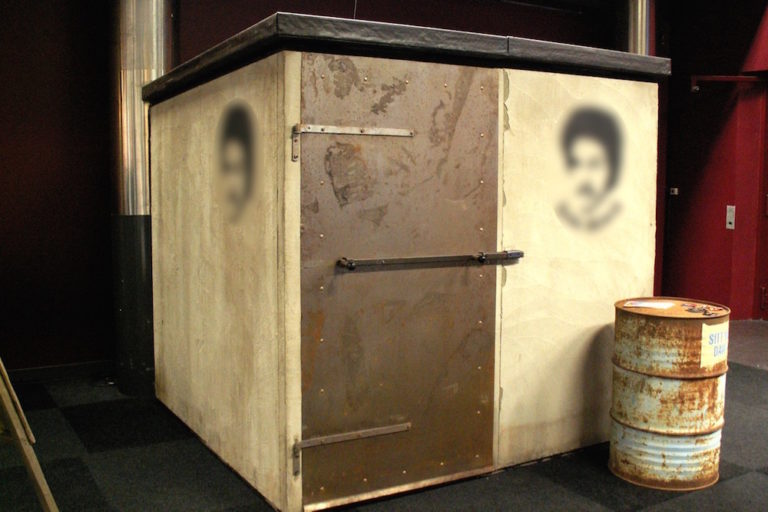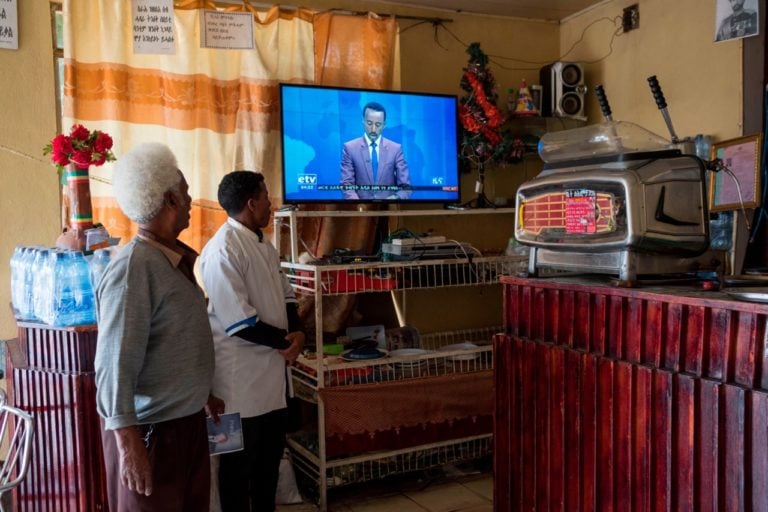RSF has launched an international ad campaign marking the 10th anniversary of the round-ups of journalists and closure of all the privately-owned print media.
(RSF/IFEX) – 16 September 2011 – Ten years ago, on 18 September 2001, the entire world’s eyes were still turned to New York, the target of Al Qaeda’s devastating attacks the previous week. In Asmara, the Eritrean government took advantage of this distraction to launch a brutal political purge.
“To the international community’s indifference, several ministers and former generals and all the newspaper editors were thrown in jail in the span of a week,” Reporters Without Borders secretary-general Jean-François Julliard said. “All the privately-owned publications were shut down. The country embarked on an era of terror from which it has yet to emerge. Ten years later, no one can continue to ignore the Eritrean regime’s brutality.”
“Ten years have gone by without the international community ever understanding the scale of the tragedy suffered by the Eritrean people: a complete absence of freedom of expression, constant surveillance of journalists, harassment of their families, enforced disappearances and secret detention in inhuman conditions.
“The sanctions that were finally adopted by the UN Security Council in 2009 are clearly not being applied because several senior Eritrean officials have just visited Europe. Nonetheless, the Eritrean dictator, Issaias Afeworki, is no less dangerous and cruel than Muammar Gaddafi or Bashar al-Assad.”
Eritrea has been ranked last in the Reporters Without Borders international press freedom index for the past four years in a row. More than 30 journalists are currently detained in Eritrea. This makes it the world’s second biggest prison for the media, after China.
According to the information obtained by Reporters Without Borders, at least four journalists have so far been arrested this year. They join the journalists who have been held since 2001 and who are still languishing in the country’s prison camps.
Three of the latest detainees are radio journalists – Nebiel Edris, Ahmed Usman and Mohamed Osman – who were arrested in February. The fourth is Tesfalidet “Topo” Mebrahtu, a famous sports journalist on the state-owned radio Dimtsi Hafash and state-owned Eri-TV. Arrested at the end of March, he is now thought to be in a detention centre near the capital, either May Srwa or Adi Abeito, a military prison. His family is not allowed to visit him.
To escape the extremely oppressive atmosphere in the state media, where everyone is closely watched and no one is allowed to speak freely, Eritrean journalists often flee the country or at least try to. Some succeed, but others are caught and arrested. This is what happened to Eyob Kessete, who was arrested for the second time in the summer of 2010 as he was trying to flee.
Border guards have orders to fire at once on anyone spotted trying to cross the border illegally. The journalist Paulos Kidane, for example, was gunned down in 2007 as he tried to cross into Sudan. Those who make it usually find a precarious existence awaiting them, and sometimes a tragic fate. Lidya Mengesteab, who used to work for Dimtsi Hafash and Eri-TV before fleeing to Sudan and then to Libya, died with many other exiles while trying to cross the Mediterranean in a boat in April.
To mark the 10th anniversary of the round-ups of journalists and closure of all the privately-owned print media, Reporters Without Borders is launching an international ad campaign about Eritrea in English, French, Spanish, German, Swedish, Italian and Tigrinya. It is also releasing an updated list of journalists detained in Eritrea.
(. . .)
Click here to read the full press release
Click here to sign a petition for the release of imprisoned journalists



